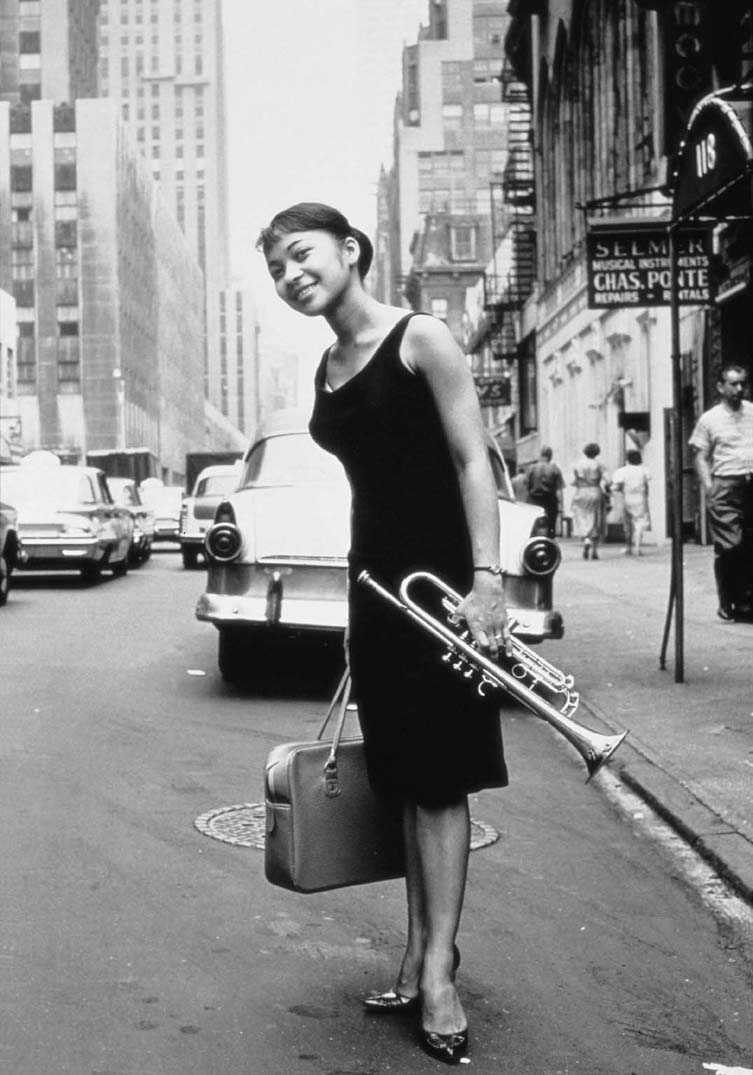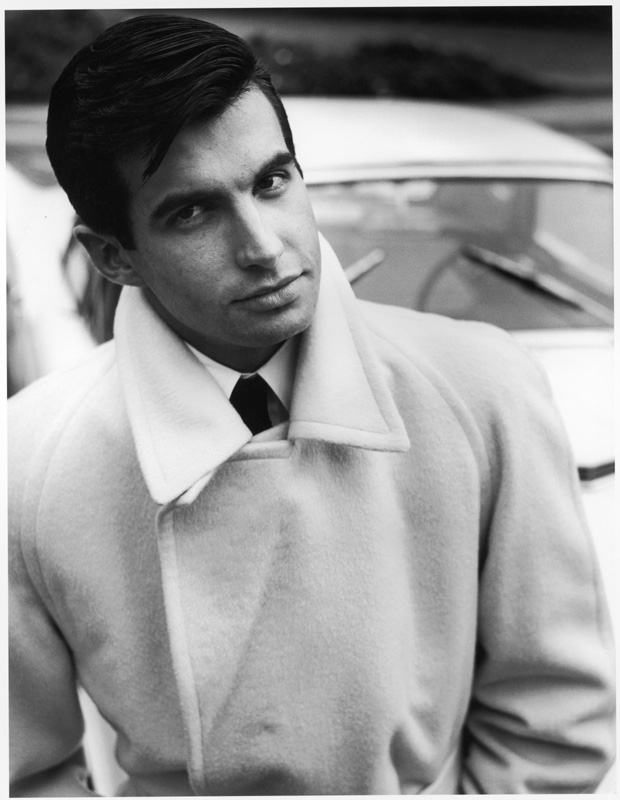"Photography is jazz for your eyes"
~William Claxton
The photographs of William Claxton define the essence of cool -- his stunningly intimate images of icons like Frank Sinatra, Chet Baker and Bob Dylan combine technical innovation and an unerring sense of the moment to forge a singular aesthetic he defined as "jazz for the eyes." Born in Pasadena, CA on Oct. 12, 1927, Claxton was the product of a musical household -- his mother was a semi-professional singer and his father avidly collected big-band records, but while he studied piano as a child, he found he had no patience for learning to play. Instead Claxton gravitated toward photography -- by age 12, he regularly took the bus to downtown Los Angeles to attend jazz performances at the Orpheum Theatre, armed with his Brownie box camera and wearing his father's suit to avoid questions about his age.
Claxton's portfolio features many of the most influential and indelible artists of the 20th century, including Sinatra, Dylan, Marilyn Monroe and Marlon Brando. His work is renowned for capturing these complex, often combative figures in their most private and unguarded moments, a relationship the photographer nurtured by promising never to portray his subjects in an unflattering light. Another signature of Claxton's work is the geometric precision of his perspective, framing subjects in poses that mirror their environmental context. Arguably his most revealing and accomplished photographs capture the legendary film actor Steve McQueen: Claxton and McQueen first bonded over their passion for sports cars, and before their scheduled session, the photographer let the star play with his camera to impress upon him the joy of taking pictures. "Can you feel your life?" Claxton asked McQueen. "Can you feel this happening to you?" Over the years to follow Claxton photographed McQueen on numerous occasions, highlighted by a 1962 shoot that yielded a celebrated shot of the actor peering up over the rim of his sunglasses while navigating his Jaguar along L.A.'s Mulholland Drive. Their friendship was later documented in Claxton's book Steve McQueen. [ via Barnes and Noble]
Coolest Mo Fo' Ever ~ Steve McQueen
Claxton often claimed that Baker's relationship with the camera taught him the true meaning of the term "photogenic." "I was up all night developing when the face appeared in the developing tray," Claxton recalled in a 2005 interview. "A tough demeanor and a good physique but an angelic face with pale white skin and, the craziest thing, one tooth missing -- he'd been in a fight. I thought, my God, that's Chet Baker."
Natalie Wood
Chet Baker
Bob Dylan
Steve McQueenHelmut Lang cat bustier bodysuit. Photographed by William Claxton for Vogue Paris, November 1989.
John Coltrane at the Guggenheim, New York, 1960
Ray Charles
Dizzy
Miles Davis
"Jazz, in its most exciting form, is an art of musical improvisation. It is an immediate creation. Photography is likewise immediate...Jazz music emanates from the reality of the musician's life experiences. In photography there is the undeniable reality of the thing from which the lens and the film take their image."
~ Claxton
Yourna Byrd, wife of Jazz trumpeter Donald Byrd,1960
John Coltrane
Marlene Dietrich portrait with William Claxton
Dennis Hopper
Chet Baker's 'Ax' and his 1954 Caddy, 1954
JAzz Great ~ Bill Evans
Model Peggy Moffitt
New Orlean, 1960.
Dietrich on Stage
Director ~ John Cassavetes
George Hamilton
Author ~ Aldus Huxley ( Brave New World)
Andy Warhol
Photographer Lee Friedlander
Spike Lee
Frank Sinatra
Noel Coward
Judy Garland
"Most of the jazz photography before me showed sweaty musicians with shiny faces in dark, smoky little bars...That was jazz to most people. But being on the West Coast, I wanted to bring out the fact that musicians here were living in such a health conscious environment. So I purposely put them on the beach or in the mountains or on the road in their convertibles." ~ Claxton
William Claxton at work

















































No comments:
Post a Comment